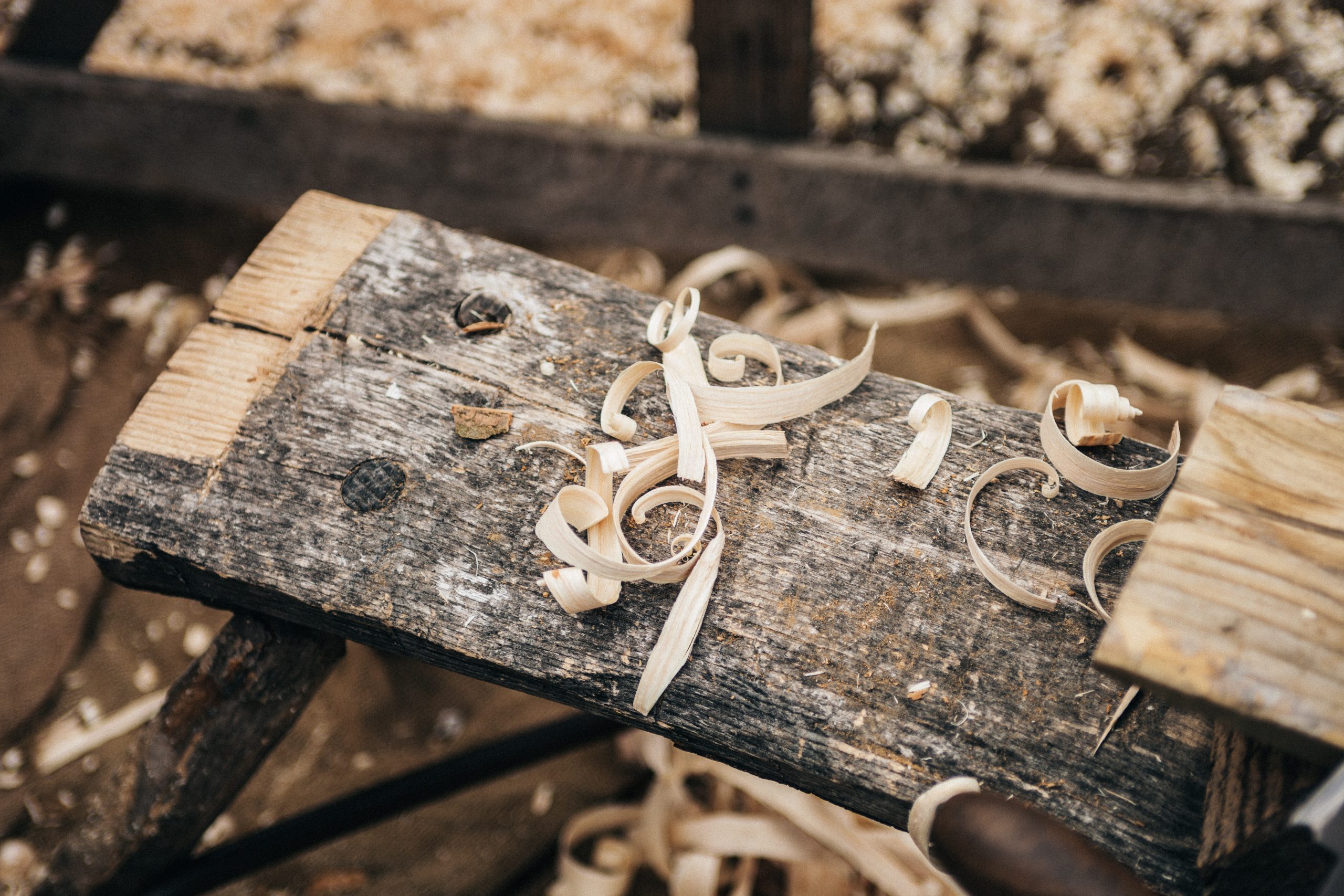With the new academic year well under way, my thoughts turn to the practicalities of discipleship and walking alongside university students as they not only work at their studies but seek to grow in their faith, for some, away from home and as their own person for the first time. So I have been really blessed to be involved in some conversations recently about practical discipleship. The focus of these discussions was how discipleship looks in a world so shaped by digital technology. So naturally, our discussions and research turned towards manual labour and skilled crafts. Just as you would expect.
First of all, a disclaimer. I am no good at craft. DIY in my case stands for “Don’t Injure Yourself!” There is a disconnect between the image in my mind of the thing I want to make and the ability that my hands have to create that image. In technology class at school, having broken most of the saws in the woodwork room and melted several circuit board in electronics, all my teachers suggested, “why don’t you just stick to food technology?” Why putting me in a room with lots of sharp knives, ovens and hobs was any safer for myself or my fellow classmates I have no idea. Thankfully everyone finished the year with the same number of fingers as they started it with.
My wife on the other hand is a walking library of craft skills. She can paint, draw, and knit, to name a few. Oh! And over lockdown she decided that she would take up whittling – as you do! People like my wife who have the attention to detail, the patience, and the ability to see something in their minds and bring it into being with their hands fascinate me. So in thinking and reading about discipleship, I was rather intrigued when I came across an article that described the discipleship process as something called “craft-knowledge”.
What became really clear in these discussions was a sense that, although digital technology affords us so many benefits which we should absolutely make the most of, there is something about discipleship that is analogue, that is “old school” in that it requires physical presence and attention, it cannot be mediated by a screen. I think we can see this in the way that Jesus calls His first disciples, when He said, “‘Follow me and I will make you fishers of men.’ Immediately they left their nets and followed Him.” (Matt 4:19-20) Jesus did not call His prospective disciples to a programme but to personal proximity. Or to use fewer “ps”, He called them to relationship, to intimacy with Him, and they willingly dropped everything to follow Him. Discipleship, then, is both one person leading another in a particular way of life and someone willingly devoting themselves to be disciplined / discipled in the way of another. For followers of Jesus, because we love Him and we recognise Him as Lord, we devote everything to follow Him. But equally, the Lord Jesus is totally committed to making us in His image. The promise of Christ to everyone who accepts His invitation to relationship, who leaves their old way of life and devotes themselves to Him is to make them.
Notice the language that Jesus uses, “I will MAKE you” – this is a craft project. Eugene Peterson, the author of the Message translation of the Bible, talks about discipleship as the work of an artisan, a skilled craftsman, who treats each person as entirely individual, approaching that person according to their situations, history, and characteristics. For those of you who live in Cardiff or have visited us at All Nations, you will most likely know of the artisan bakery on Whitchurch Road around the corner from the All Nations Centre. They are able to charge extortionate prices for their bread and pastries because each loaf is treated as an individual masterpiece (and they really are incredible)! In the same way, to be a follower of Jesus is not to enter a one-size-fits-all education system, but to engage in a deeply personal relationship with the Eternal Artisan who is dedicated to making His masterpiece. The Scriptures tell us that each of us were formed by God in our mothers’ wombs; intricately and wonderfully made; hand-crafted (Psalm 139:13-15). If that is the case for our bodies of flesh, why would our spiritual formation be any different? “For we are his workmanship (masterpiece), created in Christ Jesus for good works…” (Eph 2:10)
The challenge that we have as Christians in our contemporary age is that our primary experience of learning is based on a mass-consumerist model. For most of our schooling and education we sit down in classrooms with multiple students and a single or smaller number of teachers who convey information to us that we are meant to remember. This becomes even more acute if one goes on to university, where a student will pay large sums of money to sit in a room with hundreds of others to listen to a lecture. Or consider how many of us now receive our news or seek out information. We go to our news or social media “feed”. Our world is set-up for us to consume information, often in an impersonal manner, with minimal expectation of us actually having to put anything into practice. Now, of course there is nothing wrong with going to university or sitting down to listen and learn. Jesus spoke to congregations in synagogues and crowds on mountaintops and lakesides. Many if not most churches around the world will gather regularly to sit and listen to someone teach from the Scriptures. That is one valid part of discipleship. But what we must realise is that the Scriptures are not only for “consumption”. Jesus says it is not enough to hear the Word of God (Matt 7:21, 24). He is looking for those who will not only listen to Him but put His words into practice. Neither are we left alone to do this by ourselves. Every believer has received the Holy Spirit, the one who inspired the Scriptures (2 Tim 3:16) and who will guide us into all truth (John 16:13).
Which brings us back to the article I mentioned earlier and the term “craft-knowledge”. In this article, professor, author and mechanic (I know – strange combination!) Matthew B. Crawford talks about the process of learning a craft or a trade and the way in which it could help us move towards a more effective way of learning. In the same way that the first requirement for the disciple of Jesus is a willingness to submit and be led, so Crawford says that if one is to learn a craft the first thing you must do is not fill yourself up with knowledge but to be prepared to submit yourself to the tutelage of an entire tradition and community who has already done what you are intending to do, and be willing to leave your own understanding in order to DO what somebody else has mastered. This is almost the opposite of us “feeding” ourselves information.
Take carpentry for example. The first thing that an apprentice carpenter has to do is realise that she is not the first carpenter ever to walk the earth. There is a whole history for her to learn from. In order for her to create something new, she must first give up her own ideas or understanding and learn from those who have gone before. The second thing she must realise, is that she is not truly a carpenter until she can measure, cut, and piece together wood with her own hands. Whilst this will involve reading and consuming information, the way that traditional crafts are so often taught is through close proximity to an artisan, copying their handiwork and mastering their techniques through practice and review. Until she has devoted herself in this way she is not truly doing carpentry. She is either a carpentry philosopher, aware of the theory, or she is just hacking wood and hoping it holds together. To modern ears this might sound rather intense or restrictive. But paradoxically, it is only when one has submitted oneself to the tutor of a craft, learned their ways and their language, that one is then free to dialogue with them and to keep building on what has come before, perhaps even create something new. Crawford calls this a “conversation with the ancients.” We might simply call it prayer – talking with the Ancient of Days, seeking His heavenly will that we might walk in it on the earth.
Crawford finishes by saying this kind of devoted learning is far closer to the original meaning of education than our contemporary understanding. The word “educated” comes from the latin “ex” meaning “out”, and “ducere” meaning “to be lead”. In other words, to be educated is to be led out from yourself by and towards the ability of somebody else. I think this is a really helpful way for us to think about discipleship and devotion to Jesus, where our “devotional life” is not just another compartment in our lives; a consumer-style classroom where the Lord will test us on how many facts we can remember from our Bible reading that morning. Rather, my whole life is devotional because I am constantly in close proximity to my teacher, the Holy Spirit, who lives in me, living the life of God through me, leading me from my own ways to live according to the truth, even when I’m sleeping (Psalm 16:7)! Just like those incredibly tasty and expensive loaves of bread at the bakery on Whitchurch Road, the Lord Jesus is working in your life to make you into all that your Heavenly Father sees you can be. The question is, not whether you have the money, the background, or the intellect to consume lots of knowledge. It’s whether you are willing to leave what you know and submit to the instruction of the Master Craftsman. Unlike me and my dodgy DIY skills, the hands of Jesus are more than able to create everything that is in His mind concerning you.





